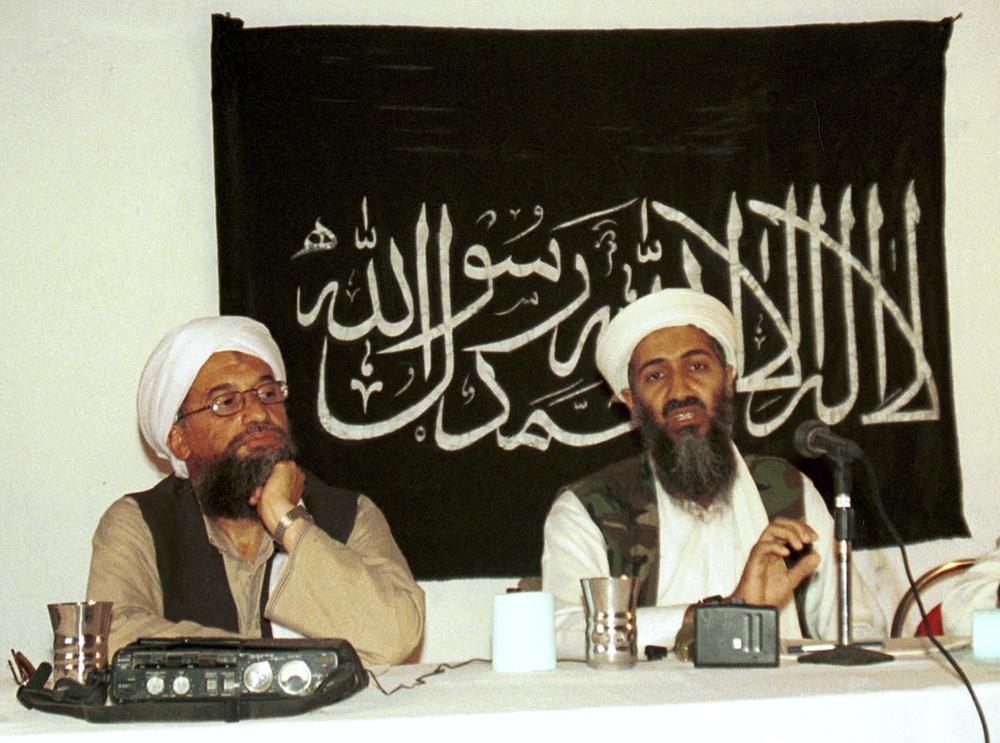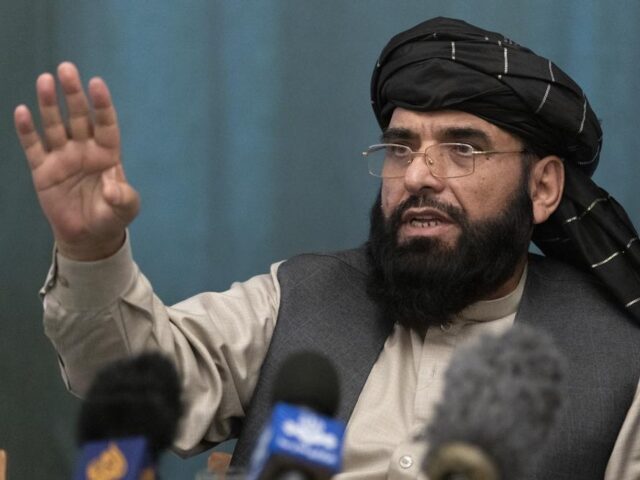Taliban jihadists claimed in an official statement on Thursday they had “no information” on the very conspicuous presence of now-former al-Qaeda chief Ayman al-Zawahiri in Kabul, Afghanistan, where a U.S. airstrike eliminated him last weekend.
The Taliban has controlled Afghanistan for nearly a year after leftist President Joe Biden announced that he would break an agreement with the Sunni terrorist group, brokered by predecessor Donald Trump, to extend the 20-year-old Afghan War beyond the May 1, 2021, deadline the two sides had agreed upon.
Taliban leaders responded to Biden’s move by announcing they would no longer honor the deal – which would have required the Taliban to cut ties with al-Qaeda and other terrorist groups – and launching a successful campaign to topple the American-backed government in the capital. By July 2021, Taliban spokesmen were denying that they ever agreed to cut ties with al-Qaeda at all.
Biden himself announced on Monday that a U.S. strike in the wealthy Sherpur neighborhood of Kabul had killed al-Zawahiri, allegedly while causing minimal physical damage and no other casualties. Al-Zawahiri took over the terrorist organization after the U.S. eliminated longtime leader Osama bin Laden, who orchestrated the attacks on America on September 11, 2001.
Taliban leaders initally responded by condemning the U.S. airstrike as a violation of the Taliban’s “sovereignty” as the functional government of Afghanistan without mentioning Zawahiri at all.
On Thursday, top spokesman Zabihullah Mujahid issued an updated statement claiming Taliban officials did not know Zawahiri was in Kabul, had “no information” on how he got there, and would conduct an “investigation” on the matter.
Declaration of the Islamic Emirate on the claim of US President Joe Bidenhttps://t.co/vDxk1oxHQp pic.twitter.com/uTMpIHeZDa
— Zabihullah (..ذبـــــیح الله م ) (@Zabehulah_M33) August 4, 2022
“The Islamic Emirate of Afghanistan [the Taliban] has no information about Ayman al-Zawahiri’s arrival and stay in Kabul,” Mujahid’s statement read. “The leadership of the Islamic Emirate of Afghanistan has instructed the investigative and intelligence agencies to conduct a comprehensive and serious investigation into the various aspects of the incident.”
Mujahid emphasized that no entity active in Afghanistan – presumably including al-Qaeda, which the Taliban had offered safe harbor to in the years prior to the September 11 attacks – posed a threat to America.
“There is no threat to any country, including America, from the soil of Afghanistan, the Islamic Emirate wants to implement the Doha pact and the violation of the pact must end,” the statement read. “The fact that America invaded our territory and violated all international principles, we strongly condemn the action once again. If such action is repeated, the responsibility of any consequences will be on the United States of America.”
The “Doha pact” is the agreement between the Trump administration and the Taliban, brokered in Doha, Qatar, in 2020. The Taliban had previously claimed that Biden’s decision to extend the Afghan War had functionally ended the Doha agreement, though it also regularly continues to accuse Washington of breaking it.
Taliban leaders similarly complained that the airstrike violated the Doha agreement on Tuesday.
“The Islamic Emirate of Afghanistan strongly condemns this attack for any reason and calls it a clear violation of international principles and the Doha Agreement,” Mujahid wrote in the Taliban’s initial statement on the strike. “Such actions are a repetition of the failed experiences of the past 20 years and are against the interests of the United States of America, Afghanistan, and the region. Repeating such actions will damage available opportunities.”
Mujahid initially did not acknowledge any relationship between the airstrike and al-Qaeda or al-Zawahiri in responding to the strike.
Like Mujahid, Suhail Shaheen, the unofficial Taliban ambassador to the United Nations, told reporters on Thursday that his organization had no knowledge of Zawahiri’s whereabouts, according to Reuters.

File/In this 1998 file photo made available Friday, March 19, 2004, Ayman al-Zawahri, left, listens during a news conference with Osama bin Laden in Khost, Afghanistan. (AP Photo/Mazhar Ali Khan, File)
“The government and the leadership wasn’t aware of what is being claimed, nor any trace there,” Shaheen, said. “Investigation is underway now to find out about the veracity of the claim.”
The circumstances surrounding Zawahiri’s presence in one of the most elite areas of the Taliban’s capital make the possibility that the jihadists did not know that he was in the city unlikely, unless the Taliban has significantly less control of Afghanistan than evidence suggests, or its security apparatus is highly incompetent. Multiple reports indicate that Zawahiri was making no efforts to hide his presence and the general public could see him lounging on his balcony – where the airstrike occurred – on a regular basis.
Reports citing unspecified “intelligence reports” and American officials claim that the home Zawahiri was living in belongs to either “a top aide” to Sirajuddin Haqqani, the high-ranking Taliban leader and the head of the al-Qaeda liaison Haqqani Network, or to Haqqani himself.
“We know that some senior leaders of the Haqqani Network were aware” of Zawahiri’s presence in the city, White House spokesman John Kirby said in a television interview on Monday. “And we know that from the way that they tried to cover things up over the last 24, 48 hours. … Look, I mean, al-Qaeda was on the ground in Afghanistan even when the president decided to end that war, and we knew that, and we talked about that, that al-Qaeda was already re-establishing a presence there.”
Haqqani is a New York Times-published columnist, penning an article titled “What We, the Taliban, Want” for the far-left newspaper in 2020. The Times described Haqqani as a “deputy leader of the Taliban.”
The Biden administration denied the relationship between the Taliban and the Haqqani Network shortly after the fall of Kabul last year.

COMMENTS
Please let us know if you're having issues with commenting.